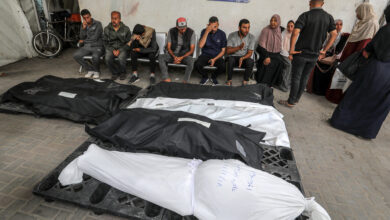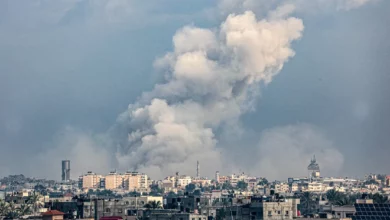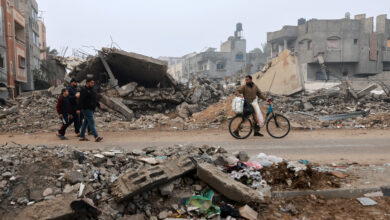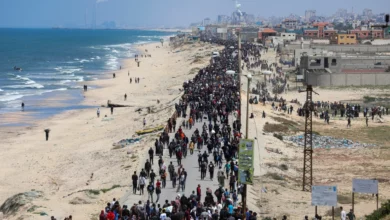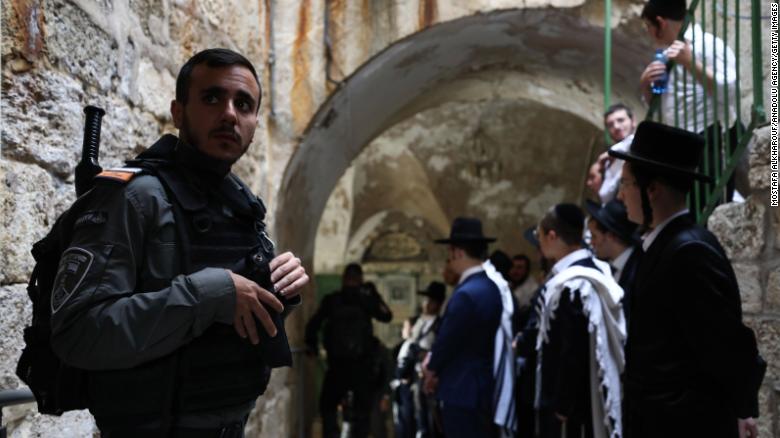
Jerusalem (CNN)The 10-month-old Israeli coalition government is facing its deepest political crisis to date, after weeks of high-profile attacks across Israel, military action in the West Bank, and after Israeli police entered and arrested hundreds at one of Jerusalem’s holiest sites.
From its inception, the coalition government had a razor thin margin, made up of a historically diverse lineup of political parties from the far left to the right wing, including the first Arab party to be an active member of a government coalition.
Because of that diverse makeup, the government said early on that it had no intention of tackling the most contentious issues in Israeli politics. But escalations in recent weeks have placed those issues front and center.
Its one-seat majority in parliament was lost earlier this month when Idit Silman, a member of Prime Minister Naftali Bennett’s own party, defected. The move sent political shockwaves throughout Israel but did not necessarily mean the current government would collapse, especially since the opposition, led by former Prime Minister Benjamin Netanyahu, doesn’t have the numbers for a majority itself.
But that could be changing. In recent days, during commemorations of both Passover and Ramadan, Israeli police say they arrested more than 300 people at the al-Aqsa mosque compound, where police say people throwing rocks and launching fireworks were jeopardizing safe worship.
The Palestinian Red Crescent said scores of people were injured by rubber bullets, stun grenades, and police batons. The presence of Israeli police inside the mosque itself became a flashpoint, as it is regarded as offensive to Muslims and puts a strain on a decades-old “status quo” agreement about the site.
In response, the United Arab List party, also known by its acronym Ra’am, suspended its membership in the coalition to protest what it said was Israeli police violence at the holy site that is sacred to both Jews and Muslims.
“If the government continues its steps against Al-Quds and its people, Al-Aqsa, its worshipers and its sanctuaries in this holy month, we will submit a collective resignation, and we call on all parties to cooperate with and support this decision,” party members said in a statement.
For the moment, the action has no immediate consequences — Israel’s parliament, the Knesset, is in recess for a few more weeks and by the time it returns, the party could decide to sit with the coalition once again.
Enter your email to sign up for CNN’s Arabic Breaking News newsletter alerts.
But if even just one member of the UAL party defects from the coalition, Netanyahu could potentially have the numbers in hand to call for a vote to dissolve parliament and trigger new elections, giving him a pathway back to power.
Never before in Israeli history has the fate of a government been in the hands of an Arab, non-Jewish party. Without UAL’s support, the coalition would never have taken power.
And even before joining the government, party leader Mansour Abbas had said that while he’s a proud member of the government with the aim of improving the lives of the approximately 20% of Israel’s population that identifies as Arab, he has his own “red lines” — though it remains unclear exactly where those lines are.
“I said and I continue to say that the blessed Al-Aqsa Mosque is a red line in which there is no compromise,” Abbas wrote in a Facebook post last week. “This is what I conveyed today in my conversation with the officials with whom I communicated, and I explained to them my position.”
Apart from Abbas’ vaunted leverage in the governing coalition, there are other officials whose influence may be moderating the response of Israeli police. as well. Israeli Minister of Public Security Omer Bar Lev is a member of the left-leaning Labor Party. And Defense Minister Benny Gantz has pushed forward increasing the number of work permits, believing that giving Palestinians more economic opportunity will bring more calm.
In Jerusalem, Israeli officials believe they have shown restraint in policing tactics on Palestinians around the mosque and Old City. Israeli media report police have been more reserved in their responses during clashes than in previous incidents and haven’t employed the kind of tactics that inflamed tensions during Ramadan last year, like barring people from gathering at the Damascus Gate plaza.
Israeli officials emphasized that even after the worst of the clashes on Friday, more than 50,000 Muslim worshippers attended prayers at the compound peacefully, although at various points since then Muslim worshippers were blocked from Al Aqsa as police accompanied Jewish groups and foreign tourists on scheduled visits.
The compound is often a flashpoint in the Israeli-Palestinian conflict. It lies in East Jerusalem, which most of the international community regards as having been under Israeli occupation since 1967. Israel disputes that and claims all of Jerusalem as its undivided capital, while Palestinians want the eastern sector as the capital of their future state.
This Ramadan, Israeli restrictions on movement of Palestinians between the occupied West Bank and Jerusalem have not been as tight as before for those with Israeli-issued permits.
At the same time though, Israel has launched raids across the West Bank in response to Palestinian attacks, and 14 Palestinians have died since late March in clashes with Israeli security forces or been shot dead by Israeli soldiers for allegedly throwing Molotov cocktails or running towards soldiers at a checkpoint.
The real test for the Israeli government will come in early May, when parliament comes back into session. That is when the true fragility of their position will be made clear.

